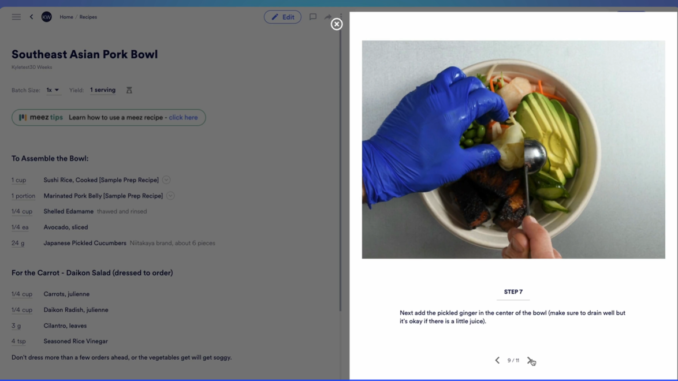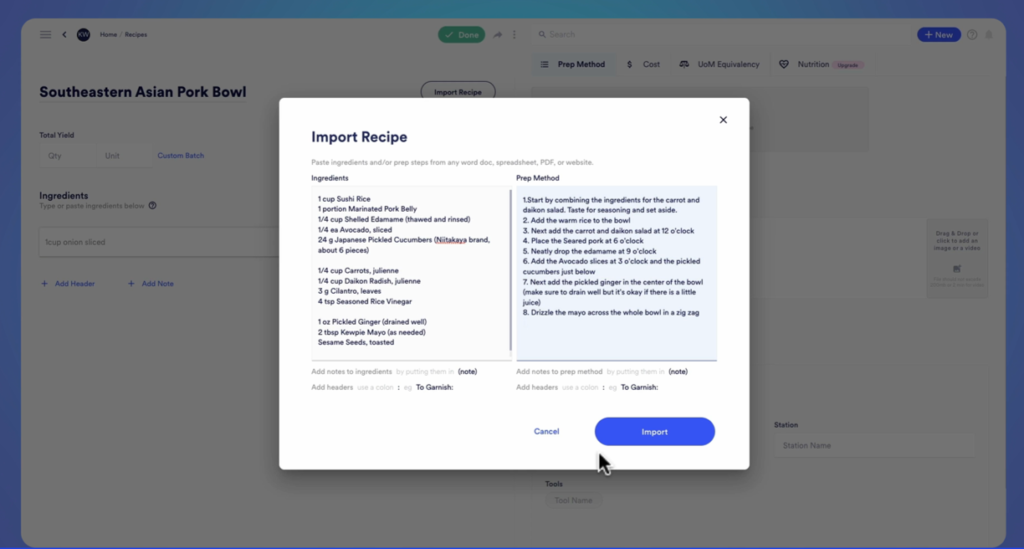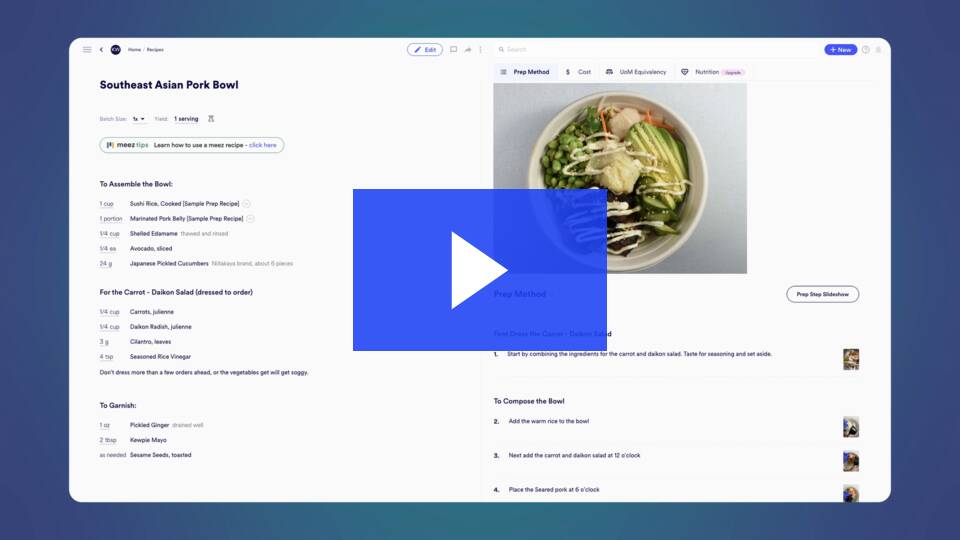
By RTN staff - 11.3.2022
Technology solution provider meez has closed a $11.5 million Series A funding round to accelerate growth for the first-of-its-kind digital professional recipe tool. The new investment will reportedly be used to build out the company’s product and engineering teams, drive awareness around the new free offering, and launch new premium features that allow chefs to instantly assess how their recipes contribute to the profitability and success of the business.
“Our new investment will be used to build out meez’s product and engineering teams,” Josh Sharkey, CEO of meez, told Restaurant Technology News. “We will also be launching new premium features that allow chefs to instantly assess how their recipes contribute to the profitability and success of the business. These features will empower executive chefs to fine tune their menu items in response to sales, demand, and margin data.”

A professional chef, Sharkey founded meez in 2020. “I began funding the project myself while operating my restaurants,” he told Restaurant Technology News. “I quickly realized there was a gap that I needed to fill in terms of use case.”
Most of my experience in the industry was in the fine dining and fast casual world,” he said. “But I knew if I wanted this tool to become universally adopted, I also needed to solve for the larger business and multi-unit groups. So I partnered up with Aurify Brands, which enabled me to build meez within the ecosystem of a group that was both creating new brands and running existing brands as well as franchisee/franchisor relationships. Aurify funded the initial build of meez after the proof of concept showed results that enabled Aurify to save over $600k annually from menu optimization and training efficiencies.”
According to the company, the recipe tool transforms how food and beverage professionals manage and execute recipes. It digitizes every aspect of the recipe workflow, allowing culinary professionals to organize, train, cost, create, and analyze their recipe content. Unlike a recipe stored in a spreadsheet or notebook, meez recipes can be shared and taught to colleagues, scaled and converted to any unit of measure, and used to make better business decisions like how to price menus.
meez has also launched a free version that offers access to many of its core features such as recipe creation and organization, dynamic scaling, and sharing. The free offering allows industry professionals to use meez as the home for their recipes throughout their entire career and fuels collaboration by enabling them to share creations with friends and peers.
The new funding round was led by Craft Ventures with participation from Struck Capital, FJ Labs, AME Cloud Ventures, Moving Capital, Max Mullen, Lenny Rachitsky, Mike Montero, Bobby Lo, Austin Rief, Louis Beryl, James Beshara, and Allison Pickens and the Todd & Rahul Fund. This latest investment follows a $6.5 million seed round in January 2022, bringing the company’s total funding to $18 million.
Already deployed in more than 1,200 kitchens worldwide spanning fine dining and fast casual restaurants, culinary schools, ghost kitchens, and catering companies, meez has tens of thousands of active users. The recipe management tool has proven to significantly increase profit margins for kitchens of all sizes by several thousands of dollars per

month and per location. After implementing meez, chefs and operators have the ability to launch new menu items and even entirely new virtual concepts in up to 75% less time, according to the company.
“From a food cost perspective, customers use meez to get laser accurate food costs because all of the yield and conversion data is built in,” Sharkey told Restaurant Technology News.
“They can then engineer their recipe, understand the impact of what ingredients they use and how much of each of those ingredients, portion sizes etc., to achieve optimal profit margins,” he said. “Many operators have eye opening moments, when they finally see a true food cost with yield loss baked in. For example, with meez, a 12 unit fast casual group was able to ascertain that one of the main proteins in their bowls was not accounting properly for yield. It had an actual margin that was 25% less than they had assumed! With meez, they were able to save over $200k per year. From a training and execution perspective, we have seen operators reducing their time to roll out new menu items and train new employees by 80%.”


